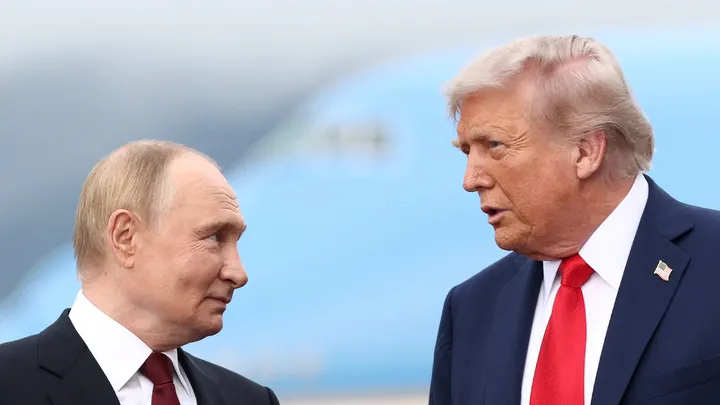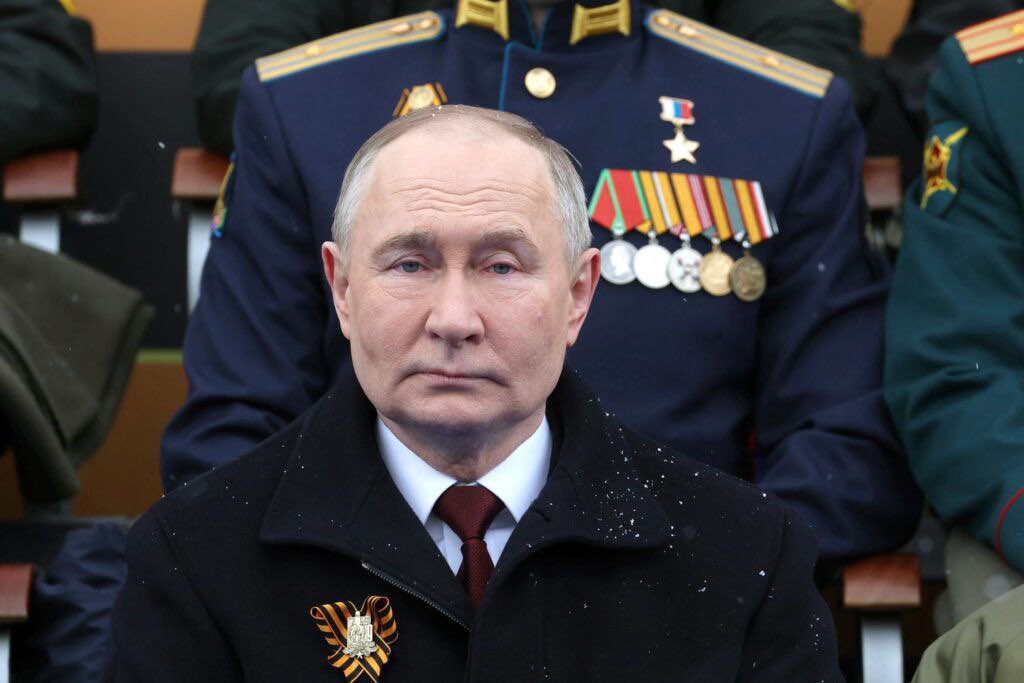Crimea: The peninsula at the heart of the Russia-Ukraine war

Trump and Putin meet in Alaska as U.S. president demands a ceasefire in Ukraine. (REUTERS/Kevin Lamarque)
Few regions in the world carry as much geopolitical weight as Crimea. A Black Sea peninsula with a complex history of conquest, annexation, and cultural intermingling, Crimea has once again become a flashpoint in global politics. Its disputed status lies at the center of the ongoing Russia-Ukraine war, shaping battlefield strategies, international diplomacy, and the balance of power in Eastern Europe.
A Peninsula of Strategic Importance
Geographically, Crimea is a crown jewel in Eastern Europe. Jutting into the Black Sea, it holds immense strategic value for military and economic reasons. Whoever controls Crimea also commands access to the Black Sea and, by extension, influence over trade routes to the Mediterranean and beyond.
For Russia, Crimea is more than just a territory—it is home to the port city of Sevastopol, a historic naval base that houses the Black Sea Fleet. Losing Crimea would mean weakening Moscow’s maritime power. For Ukraine, on the other hand, Crimea represents sovereign land unjustly taken, a wound that has festered since 2014.
READ ALSO
No NATO, no Crimea: Trump pressures Zelensky before White House talks
A History of Shifting Control
The roots of the Crimean dispute lie deep in history. Once part of the Ottoman Empire, the peninsula was annexed by Russia in the late 18th century under Catherine the Great. It remained within the Russian Empire until 1954, when Soviet leader Nikita Khrushchev transferred Crimea to the Ukrainian Soviet Socialist Republic—a decision that seemed minor at the time, but one that became pivotal after the Soviet Union’s collapse in 1991.
With Ukraine’s independence, Crimea legally became Ukrainian territory, though it remained heavily populated by ethnic Russians. This ethnic makeup, combined with Russia’s naval presence, laid the groundwork for future tensions.
The 2014 Annexation: A Turning Point
The current dispute exploded in 2014 after Ukraine’s Euromaidan protests toppled President Viktor Yanukovych, a Kremlin ally. Russia moved swiftly, sending troops without insignia—dubbed “little green men”—to seize control of Crimea. Following a controversial referendum, which the West widely dismissed as illegitimate, Russia annexed the peninsula.
The move drew international condemnation and triggered sanctions against Moscow, but Russia held firm, declaring Crimea an inseparable part of its territory. Ukraine, supported by Western allies, vowed never to recognize the annexation. This moment not only fractured relations between Russia and the West but also set the stage for the larger war that erupted in 2022.
Crimea in the Ongoing War
Since Russia’s full-scale invasion of Ukraine in February 2022, Crimea has played a central role in military operations. Russian forces have used the peninsula as a staging ground for attacks, logistics, and supply routes into southern Ukraine. Key infrastructure, such as the Kerch Bridge linking Crimea to mainland Russia, has become a frequent target of Ukrainian strikes.
For Ukraine, regaining Crimea is both a symbolic and strategic necessity. President Volodymyr Zelensky has repeatedly asserted that the war cannot truly end until Crimea is restored to Ukrainian sovereignty. Western military aid has increasingly supported Ukraine’s push to weaken Russia’s grip on the peninsula, though retaking it remains one of the most formidable challenges.
The Symbolism of Crimea
Beyond strategy, Crimea has become a symbol of national identity and resistance. For Ukraine, its return represents justice and the reversal of an illegal annexation. For Russia, Crimea embodies pride, nationalism, and the restoration of perceived lost greatness. This clash of identities makes compromise nearly impossible.
Internationally, Crimea’s fate is viewed as a test of global norms. If Russia is allowed to keep the peninsula, critics warn it could embolden other nations to pursue territorial expansion through force. If Ukraine succeeds in reclaiming it, the victory would mark a historic reaffirmation of international law and sovereignty.
Why Crimea Matters Now
As the Russia-Ukraine war drags on, Crimea remains both a battlefield prize and a diplomatic puzzle. Its harbors, military bases, and symbolic weight ensure that it will continue to dominate discussions in Washington, Brussels, Moscow, and Kyiv.
Whether through military liberation, negotiated settlement, or indefinite stalemate, the outcome of the Crimean question will shape not only Ukraine’s future but also the global order. The peninsula, caught between empires and nations for centuries, is once again at the heart of history.
The Future of Crimea
As the war grinds on, Crimea remains one of the most volatile flashpoints. Ukrainian forces continue to launch attacks against Russian positions there, while Russia fortifies its defenses to prevent any breakthrough. Diplomatically, discussions about peace often hit a wall when Crimea is mentioned.
The peninsula’s fate could shape the outcome of the war and the future of European security. Whether it remains under Russian control, returns to Ukraine, or becomes the subject of a new international settlement, Crimea will continue to be more than just a piece of land—it will remain a symbol of resilience, power, and unresolved history.



Why is Vladimir Putin attacking European Leaders...
December 18, 2025